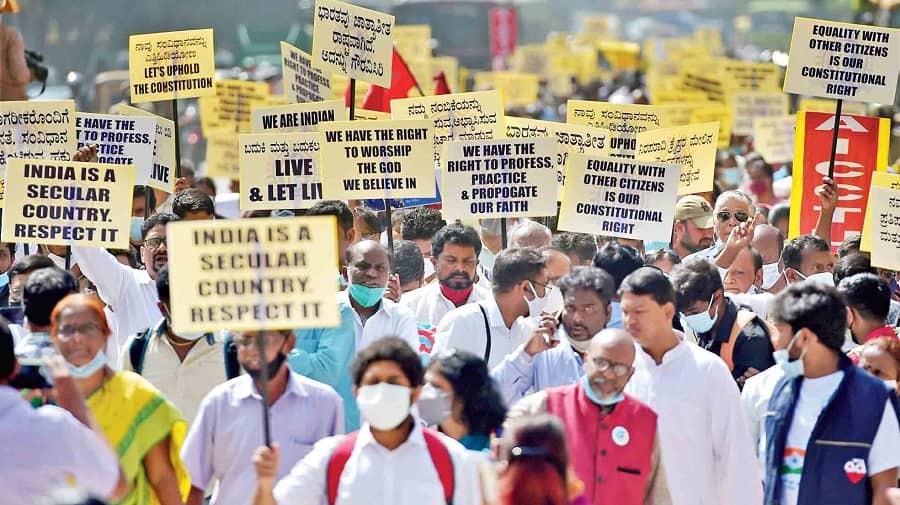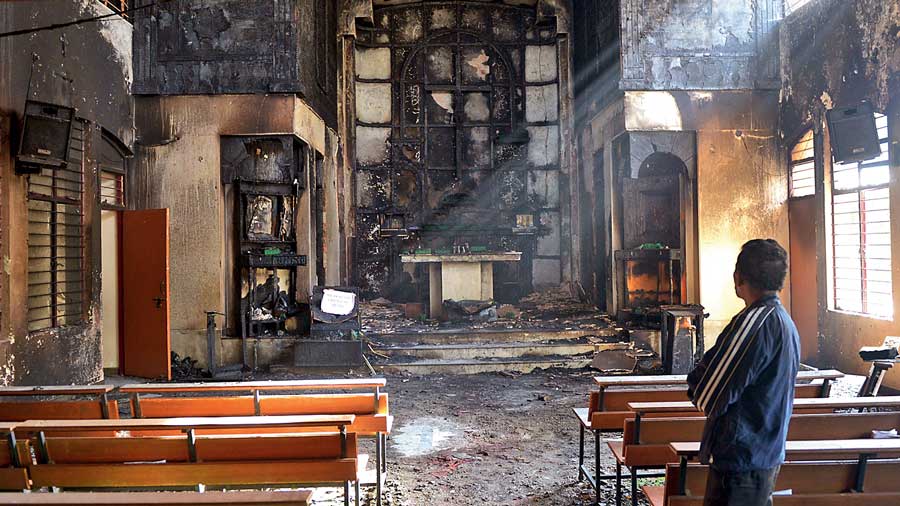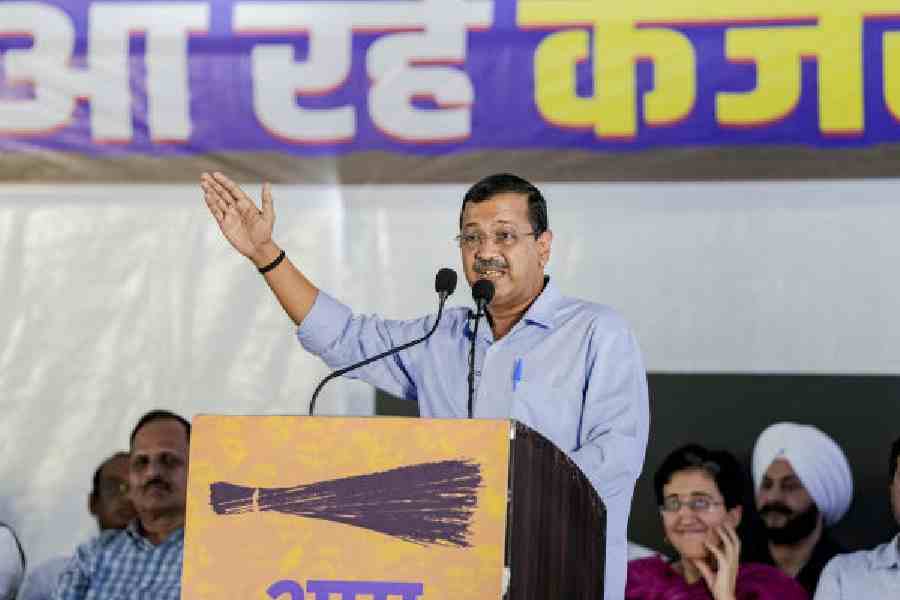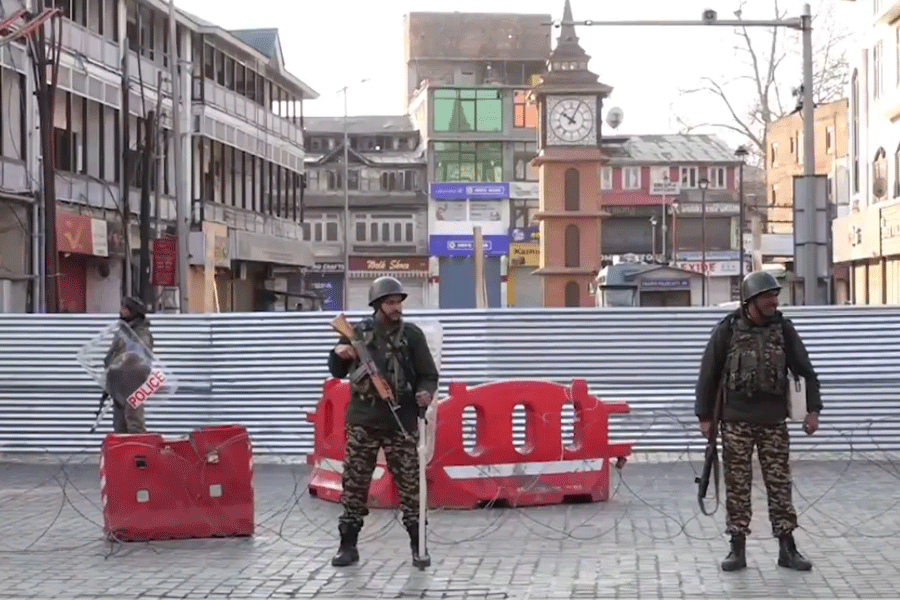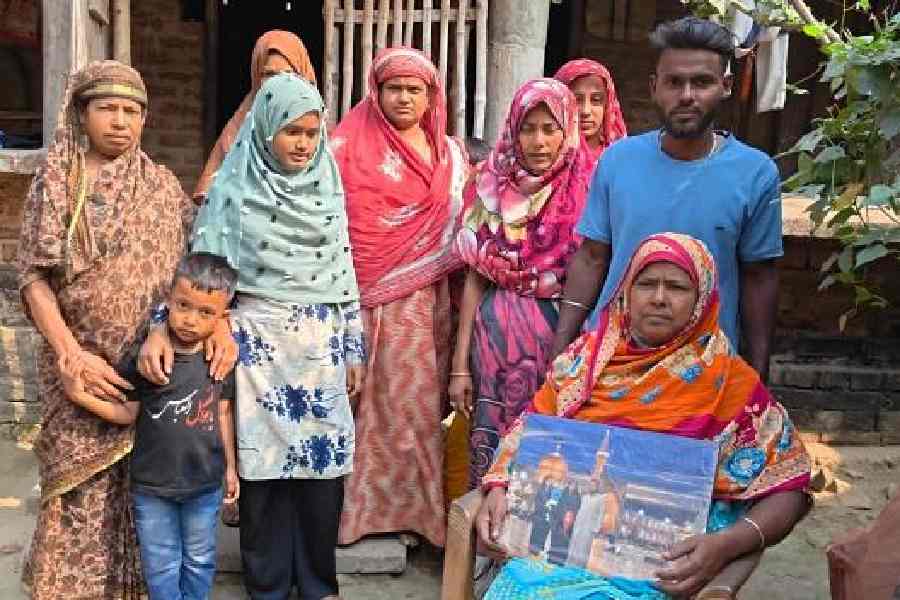The Christians were mid-hymn when the mob kicked in the door.
A swarm of men dressed in saffron poured inside. They jumped onstage and shouted Hindu supremacist slogans. They punched pastors in the head. They threw women to the ground, sending terrified children scuttling under their chairs.
“They kept beating us, pulling out hair,” said Manish David, one of the pastors who was assaulted. “They yelled: ‘What are you doing here? What songs are you singing?’”
The attack unfolded on January 26 in Indore. Police soon arrived, but the officers did not touch the aggressors. Instead, they arrested the pastors and other church elders, who were still dizzy from getting punched in the head.
The Christians were charged with breaking a newly enforced law that targets religious conversions.
Pastor David was not converting anyone, he said. But the organised assault against his church was propelled by a growing anti-Christian hysteria that is spreading across the vast nation, home to more than 30 million adherents.
Anti-Christian vigilantes are sweeping through villages, storming churches, burning Christian literature, attacking schools and assaulting worshipers. In church after church, the very act of worship has become dangerous despite constitutional protections for freedom of religion.
Many Christians have become so frightened that they try to pass as Hindu to protect themselves.
“I just don’t get it,” said Abhishek Ninama, a Christian farmer, who stared dejectedly at a rural church stomped apart this year. “What is it that we do that makes them hate us so much?”
The pressure is greatest in central and northern India, where the BJP is firmly in control, and where evangelical Christian groups are making inroads among lower-caste Hindus, albeit quietly. Pastors hold clandestine ceremonies at night. They conduct secret baptisms. They pass out audio Bibles that look like little transistor radios so that illiterate farmers can surreptitiously listen to the scripture as they plough their fields.
In the past few years, Prime Minister Narendra Modi and the BJP have tugged India far to the Right, away from what many Indians see as the multicultural foundation Jawaharlal Nehru built. The rising attacks on Christians, who make up about 2 per cent of the population, are part of a broader shift in India, in which minorities feel less safe.
Across India, the anti-Christian forces are growing stronger by the day, and they have many faces, including a white-collar army of lawyers and clerks who file legal complaints against Christian organisations. They also devise devastating social boycotts against isolated Christians in remote villages.
According to extensive interviews, Hindu nationalists have blocked Christians from community wells, barred them from visiting Hindu homes and ostracised villagers for believing in Jesus.
“Christians are being suppressed, discriminated against and persecuted at rising levels like never before in India,” said Matias Perttula, the advocacy director at International Christian Concern. “And the attackers run free, every time.”
Dilip Chouhan sits in an office behind a copy shop in the small Madhya Pradesh town of Alirajpur, meaty arms folded across his chest. He is part of a growing network of anti-Christian muscle.
Just the mention of Christians makes his face pucker, as if he licked a lemon. “These ‘believers,’” he said, using the term derisively, “they promise all kinds of stuff — motorcycles, TVs, fridges. They work off superstition. They mislead people.”
BJP-ruled Madhya Pradesh this year passed an anti-conversion law.
Energised by it, Chouhan, 35, and scores of other young Hindu nationalists have stormed a string of churches. Some of the raids were broadcast on the news, including footage of Chouhan barging into one church with a shotgun on his back.
Several pastors in the ransacked churches were jailed on charges of illegal conversions. Police officers declined to share their evidence.
Chouhan says his group, which uses WhatsApp to plan its raids on upcoming church services, has 5,000 members. It is part of a constellation of Hindu nationalist organisations across the country, including the RSS as well as many members of the BJP.
“The BJP is really into this issue, big time,” said Gaurav Tiwari, a party youth leader in Madhya Pradesh.
His BJP comrades in the neighbouring state of Chhattisgarh recently conducted several anti-Christian marches during which they belted out: “Converters! Let’s beat them with shoes!” In September, they did exactly that: A throng of young BJP workers barged into a Chhattisgarh police station and hurled shoes at two pastors and beat them up — in front of police officers.
“I slapped that pastor five or six times,” bragged Rahul Rao, a 34-year-old contractor and officer holder of the BJP youth cell.
Christians in states such as Kerala and Goa, which have large historic Christian communities, face much less persecution, if any at all.
But in tradition-bound rural areas where Christians are a tiny minority, the pressure is intense. Village elders in Bilawar Kalan, in Madhya Pradesh, recently instituted a fine of Rs 10,000 for any family that allows Christians in their home. At the same time, they are trying to force the few Christian families to convert to Hinduism, warning that otherwise no one will marry their children, attend their funerals or sell them anything at the market.
“They want to remove us from society,” said Sukh Lal Kumre, a threadbare farmer and a Christian.
When asked about the social boycott, elders in Bilawar Kalan were not evasive or apologetic at all. “We are doing this to coerce them back to society,” explained Mesh Lal Chanchal, who is also one of the village’s top BJP members.
A few years ago, after Catholic churches in New Delhi had been vandalised, Christian leaders pleaded with Modi for help. He was disinterested, mocking them and never addressing the attacks, according to three clergymen who attended an important meeting at the Prime Minister’s residence in December 2014.
“He acted like a don,” said Father Dominic Emmanuel, a former official with the Delhi Catholic Church who now lives in Vienna.
When asked about the meeting, a spokesman for Modi said these were “unsubstantiated allegations” and pointed to a speech in which the Prime Minister said he would “not allow any religious group, belonging to the majority or the minority, to incite hatred against others”.
This October, Modi met Pope Francis at the Vatican and invited him to visit India. Some analysts saw that as progress. Others dismissed it as a cynical ploy for Catholic votes.
Attacks have shot up over the past few months and have spread to Karnataka.
“Just like they have terrorism to beat the Muslims with,” Father Emmanuel said, “they have conversions to beat the Christians with.”
Pastor David, who was beaten up and arrested in Indore, said his first night in jail was terrifying. He was denied food, water and a lawyer. He and eight other Protestant elders spent two months in jail and still face serious charges.
“The cops seemed to have ears only for one side,” he said.
Santosh Dudhi, a senior police officer in Indore, said his officers had acted on a complaint by a young woman who accused her parents and church leaders of forcing Christianity on her. When tracked down at her home on Indore’s outskirts, though, the young woman, Shalini Kaushal, denied the police account. “I never said my parents were forcibly trying to convert me,” she said.
Human rights groups estimate that more than 100 Christians have been falsely arrested this year.
The anti-conversion laws are popular, part of the BJP’s playbook to use religion as a force to polarise the masses and win votes from Hindus.
“If somebody wants to convert, no problem,” said Sudhanshu Trivedi, a BJP spokesman. “But why is it that only the most illiterate and poor convert? Can you tell me that someone who cannot even write the ‘J’ of Jesus begins to believe in it? How so?”
At least a dozen Indian states have either passed laws, handed down court orders or are entertaining measures that restrict religious conversions. The laws are often so vaguely written that almost any church activity could be considered illegal.
“You could get thrown in jail for giving someone ice cream,” grumbled one Christian.
This has made it dangerous for many pastors. One evangelical preacher in Uttar Pradesh who goes by one name — Balram — said he and a relative were arrested in August 2020 on suspicion of unauthorised conversions. Pastor Balram said all they were doing at the time was having tea.
At the police station, he said, the officers punched him in the groin, smacked him with wooden poles and yanked out clumps of his hair. He said one officer wore a heavy metal bangle and kept thumping his relative on the head. “His head still hurts,” the pastor said.
A police officer, Sunil Kumar Singh, confirmed the broad outlines of the case but denied any abuse, instead putting the blame on Pastor Balram. “He was doing conversions and trying to disturb communal harmony,” Singh said, without providing any evidence.
A Pentecostal pastor was bludgeoned to death in June at Sangohi in Haryana.
Vinod Patil, a Pentecostal preacher in Madhya Pradesh, is not giving up. These days, he operates like a secret agent. He leaves his house quietly, jumps on a small Honda motorbike and putters past little towns and scratchy wheat fields, Bible tucked inside his jacket. He constantly checks his mirrors to make sure he is not tailed.
“The Constitution gives us the right to preach openly,” he said. “Still, you got to be careful.”
Hindu extremists have warned Pastor Patil that they will kill him if they catch him preaching. So last year he shut down his Living Hope Pentecostal Church and shifted to small clandestine services.
“Before, when we had a problem, we’d go to the police,” he said. “Now, the anti-Christians have the government with them.”
Muttur Devi, a lower caste woman who works on a farm in Bihar, adopted Christianity two years ago. Still, each morning, she wears bindi and sindoor. “If I take this off,” she said, touching her bindi, “the whole village will harass me.”
One cold night last winter, Pastor Patil drove to a secret prayer session in an unmarked farmhouse. He quickly stepped inside. On a dusty carpet that smelled like sheep, two dozen Pentecostal Christians waited for him. Most were lower-caste farmers.
Pastor Patil cracked open his weathered, Hindi-language Bible and rested his finger on Luke 21.
“They will seize you and persecute you,” he read, voice trembling.
“You will be betrayed even by parents, brothers, sisters, relatives and friends,” he went on, tracing the passages with his finger. “They will put some of you to death. Everyone will hate you because of me.”
The farmers sitting on the floor, some holding sleeping babies, watched him closely.
They also checked the windows to make sure no one was coming.
New York Times News Service

